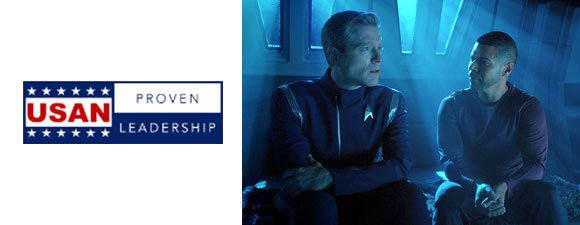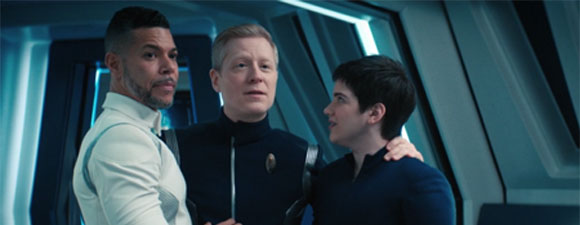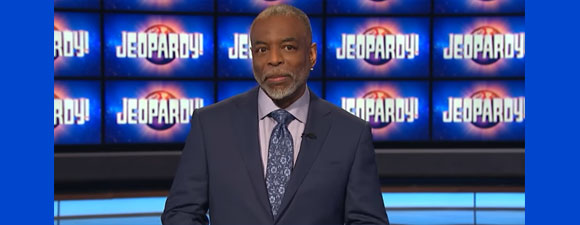Best of Both Worlds: The Daring Cliffhanger
5 min read
Those watching Star Trek: The Next Generation back in June of 1990 will never forget the cliffhanger that had them on the edge of their seats until the second part aired in late September.
The Best of Both Worlds brought The Next Generation out from behind the shadows of James T. Kirk and the original series.
Those associated with the show spoke about it recently, detailing what went on behind the scenes and what they were thinking when creating the suspenseful cliffhanger. The story was written by Michael Piller, who told the writing staff during that third season that he felt that they should revisit the Borg and also write a cliffhanger, something that the stand-alone original series had never done.
“It was the only show that year that we didn’t actually sit in the room as a writing staff and break together,” said Ronald D. Moore. “Michael said he wanted to go do it. Michael had a very personal connection to that particular story. The episode starts with Riker getting an offer to go command another ship. That’s at the heart of it. Michael said very overtly that he was in a very similar place. He was the number two guy on the show, and he was debating whether or not to leave Star Trek and go and run his own show or if he wanted to remain second in command of the Enterprise, as it were. So he was Riker, and he wrote the story from that perspective.”
“All of us were quite thrilled they had the balls to leave Picard on the Borg cube,” said Jonathan Frakes. “I don’t know if they were trying to threaten Patrick with renegotiations. It’s commonplace now. Shows like Lost and House of Cards — they’ll kill off a regular and think nothing of it. This was 1990. It was not commonplace to be killing off any of your series regulars. That was a big ‘who shot J.R.’ type of plot.
“The episode was key to Riker’s character. Previously, I thought it was not very cleverly handled to have Riker say in the first two seasons, ‘All I want is to have my own ship. I aspire to be a captain in Starfleet.’ But then, when offered the ship, the writers put in Riker’s mouth that he didn’t feel he was ready to captain, or he didn’t want to leave his friends.”
“My favorite moment was seeing Picard in that Borg outfit for the first time,” said Moore. “When that reveal happens and he looks at the camera and he’s a Borg, and he says, ‘I am Locutus.’ It was a shocking moment. You realize the show had gone someplace different. We all knew that internally and were like, ‘Woah, OK. This is going to break some molds.'”
The cliffhanger was quite popular and boosted The Next Generation, bringing acceptance for a show which had split fandom. “You would go to conventions and there would be bumper stickers and t-shirts that basically said, ‘I’m a real Trekker. Forget the bald guy.’ Stuff like that,” said Moore. “We were the second-tier Trek. When Best of Both Worlds came out, suddenly there was all this buzz. And it got in the press and there was all this tension and people were talking about the cliffhanger and Picard.”
But then it was time to resolve the cliffhanger, and to figure out how to get Picard back on the Enterprise. “Part II, we did break the story together in the writer’s room, but when Michael did Part I, he said, I have no idea how this thing ends,” said Moore. “We’re going to end on this cliffhanger of ‘fire’ and we’re going to figure it out next season.’ We all gather in the room, and it was essentially a new writing staff. I was the only holdover from season three. We sat down, and Michael was like, ‘All right, I don’t know where we’re going. Let’s just try to figure out something.'”
The writers did figure it out, but “the second half of the show was kind of not as satisfying as the first half, in all honesty,” said Moore. “It was a little too technobabble. It doesn’t quite have the oomph that Part I did. But Michael [Piller] was fine with that. He launched us into more character-based storytelling.”
Frakes liked the fact that there were consequences for Picard from being captured. “The cool thing about the story was that he was forever haunted by Locutus being in his DNA,” he said. “That informed the first movie that I directed, First Contact.”
And the next episode after The Best of Both Worlds, Family, showed Picard breaking down emotionally after his harrowing experience. Gene Roddenberry didn’t like that episode though, as he thought that sibling rivalry and family tensions would be a relic of the past. “We had to kind of fight for Family,” said Moore. “Roddenberry hated it. He wanted to throw it out. Roddenberry said that ‘these brothers reflect outdated, 20th-Century modes of childhood development. Mankind had solved these kind of issues by then. I hate this.’ I sat there and I was a really green writer. I was like, ‘Oh my God, what are we going to do? I’m dead.’ We walked out in the hall and I just looked at Michael and Rick and was like, ‘What do I do now?’ They said, ‘You know what? Just go write your story, we’ll work with Gene.’ That was the last I ever heard of it.”
The Best of Both Worlds was “the turning point on Next Generation‘s acceptance as Star Trek, among the fans and with the public,” said Moore. “Suddenly we had done something that was legitimate and got people’s attention and told a great story. From then on out we carried the torch. We were legitimate and that was the show that turned it around for us.”







25 years, wow. Those really were heady days for Trek. BOBW I was a huge shocker at the time and is arguably the best episode of TNG ever done. There was such an exciting sense of the show finally coming into its own, a year culminating with something that, at last, TOS had never done. “From this time forward…. you will service…. US.”
Unfortunately, the lack of planning showed that fall in Part II, which was not only a letdown, but a complete cop-out. The Borg make it to Earth, are about to royally screw everybody…. and Data just hacks into their network and puts them to sleep. Fire at your leisure, Mr. Worf! Yeah, I don’t think so. But then, the problem with the Borg from the beginning was that they were conceived as an enemy so powerful, there was no way to resolve an encounter with them without a massive cop-out.
Even more unfortunately, this set TNG’s pattern of annual cliffhangers that were followed up in the fall with cop-out resolutions and a return to the status quo in week 2. DS9’s formula was far preferable; season finales that weren’t cliffhangers, but that set the stage for situations and conflicts that would run throughout the following seasons.
The anecdote about Roddenberry and “Family” is a good illustration of what was smothering TNG in its first year or two and would surely have killed it before it got anywhere near a fourth season, had he stayed in the driver’s seat. He was determined to wring out every drop of real human emotion that makes effective drama possible.
I think you are right about the problem of dodgy cliffhangers. ENT had a bit of that too. Possibly VOY also; I haven’t really watched it. I think the problem was not so much that the resolutions were poor, more that the writers would get into a crazy situation in Part 1 with no idea how to end it, which left the writers of Part 2 scrambling. Plan these things in advance, people!
I see your point about Part II but remember too, that was an innovative idea for 25 years ago. Before this, robots in any form were treated as these unstoppable monsters – just look at Terminator. Even the borg were initially presented that way. Them attempting to hack in, find the most obvious ways to defeat the borg(lower shields, cut power, etc) were protected but yet this little insignificant command to put them all to sleep was available and not protected was an interesting idea. Picard fought back the only way he could and gave them a way to defeat the borg that the borg never considered a threat . Classic Kirk moment in TNG. Would it have been better if they worked it all out at once? Maybe but then again, Part I might not have turned out so good either. In any event, as a 90 minutes episode it works and is a fun ride.
I agree with you about Family. I was surprised to find out it was the lowest rated episode that season as it is such a good episode and very much needed after BOBW. There are some TNG episodes I appreciate more now than when they first aired but this was one that when I first saw it I thought was fantastic and different. I think by this point Roddenberry had gotten so wrapped up into his own hype that he lost perspective about what he was trying to say. Not every human is in Starfleet, not every human is going to be perfect. I am just glad they still did the episode and we get to see it as there are other episodes that he said no to that sound like they would have been great.
I remember watching that episode and glancing at the clock and thinking “They don’t have time to wrap this up. They’re going to leave it hanging”. And to think I wouldn’t find out what happened for three whole months. Little did I know that 25 years later, series would go half a year or more before they next “point 0” season would start back up :/. And you’re right TD, once the Borg were defeated in this episode, it set the stage for them to be defeated in every other episode. They would never again be as scary as they were when Q sent the Enterprise across the galaxy to encounter them, or in part I of TBOBWs